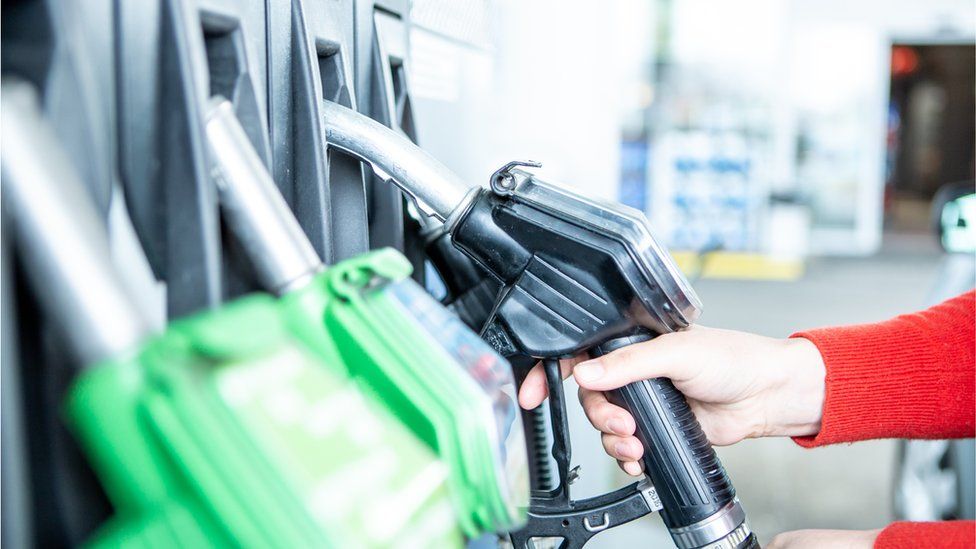Supermarkets not passing on lower fuel price - RAC
- Published
- comments

Supermarkets are not cutting fuel prices by as much as they should do to match the "significant" drop in the cost of wholesale fuel, the RAC has said.
The motoring group said the gap between pump prices and wholesale prices was the widest in almost a decade.
The price of petrol on Tuesday was about £1.76 per litre, but RAC analysts suggested it should be about £1.62.
Fuel prices have hit record highs this year, but are slowly starting to fall.
The RAC said at the start of the week, the average petrol price at the big four supermarkets, Tesco, Asda, Sainsbury's and Morrisons, was £1.74 per litre. Diesel was £1.86.
Meanwhile the average for the delivered wholesale petrol price last week was £1.24, while diesel was £1.38.
After factoring in VAT, fuel duty and a "generous" retailer margin of 10p per litre, the RAC said "forecourts should soon be selling unleaded for no more than £1.62".
"There appears to have been a big shift in the last few months in the behaviour of the four major supermarkets, which dominate UK fuel retailing, as they are now commonly being undercut by independent retailers that are passing on the wholesale cost savings they're benefitting from to drivers at the pumps," said Simon Williams, RAC's fuel spokesman.
"This is unheard of as the supermarkets are normally at least 3p a litre cheaper than the UK average."
The reason supermarkets are usually cheaper than independent retailers is because they buy fuel more frequently meaning they can react quickly when wholesale prices move up or down.
Mr Williams said that was "often demonstrated by the speed at which they pass on increases on their forecourts when wholesale prices rise".
"As the supermarkets account for so much of all the fuel sold across the country and they haven't lowered their prices as much as they should have, it means average UK prices have not come down in line with the significant drop in wholesale fuel," he added.
Tesco, Sainsbury's, Asda and Morrisons have been contacted for comment.
The gap between retail and wholesale prices, excluding VAT, is the widest since the RAC started monitoring them in 2013.
The RAC said the current gap exceeded the difference between wholesale and retail prices at the start of the pandemic, when the country went into lockdown, and the price of oil plunged to about $13 a barrel. Oil has been consistently at around $100 per barrel in recent months.
Fuel prices were already rising before the war in Ukraine started in February, but the fallout from Russia's invasion has made things worse.
Russia is one of the world's largest oil exporters, but is facing sanctions as a result of its actions in Ukraine. This has pushed up demand for oil from other producers, leading to higher prices.
Although the UK imports just 6% of its crude oil from Russia, it is still affected when global prices rise.
Petrol and diesel prices usually move when the price of crude oil goes up or down.
In mid-June, the RAC revealed petrol prices hit new record highs every day for a month, which led to the average family car costing more than £100 to fill up.
Related Topics
- Published14 August 2023